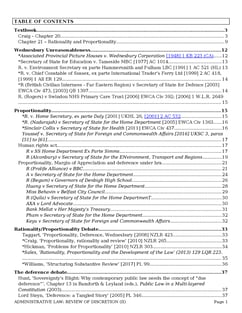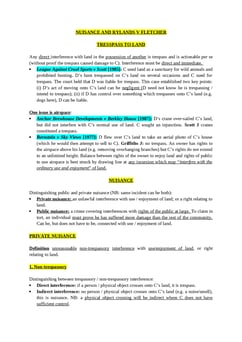R (on the application of British Civilian Internees - Far Eastern Region) v Secretary of State for Defence [2003] EWCA Civ 473
Judgement for the case R (on the application of British Civilian Internees - Far Eastern Region) v Secretary of State for Defence
Table Of Contents
KEY POINTS
Proportionality may compel the reviewing court to evaluate the equilibrium achieved by the decision-maker, and this evaluation could yield a different outcome compared to using the Wednesbury test.
The rigidity of the Wednesbury test has been loosened in recent years, even in contexts unrelated to fundamental rights.
FACTS
The appellant, the Association of British Civilian Internees Far Eastern Region (ABCIFER), represents British civilians who were interned by the Japanese during World War II and were denied a £10,000 compensation payment by the UK Secretary of State for Defence.
After sustained pressure, a compensation scheme was introduced in 2000, offering the payment to surviving members of various British groups held captive by the Japanese during the war, including civilians.
However, the UK government required that claimants meet certain eligibility criteria, known as the "birth criteria," which stated that individuals or their parents/grandparents had to be born in the UK to qualify for the payment.
The government's decision to implement these criteria is being challenged as unlawful by the appellant, arguing that the requirement for "strong links" with the UK should not include these birth criteria.
JUDGEMENT
Appeal dismissed.
COMMENTARY
This case illustrated a broader trend in administrative law, where the strictness of the Wednesbury test had been relaxed in recent years, especially when fundamental rights were at stake. It emphasized the importance of considering the balance between government discretion and individual rights and whether the government's actions were proportionate in achieving their policy objectives.
ORIGINAL ANALYSIS
Govt announced a non-statutory compensation scheme for British citizens who were interned by the Japanese during WWII, but later govt said that it would only compensate those who had either been born in England or had English parents at the time of the interning.
Plaintiffs sought to challenge the latter limb under judicial review.
CA said that the later “clarification/modification” was not Wednesbury unreasonable nor disproportionate.
Dyson LJ
“We have difficulty in seeing what justification there now is for retaining the Wednesbury test” but said that because of its endorsement by several HL authorities he could not “perform its burial rites”.
Keeping Wednesbury and proportionality in separate compartments is “unnecessary and confusing” (per Lord Slynn in Alconbury).
He says that proportionality is more “precise” test, while Wednesbury has been adapted anyway in recent years so as to cover more than merely the most extreme decisions, and is moving towards a proportionality-style test.
RELATED CASES
For Further Study on R (on the application of British Civilian Internees - Far Eastern Region) v Secretary of State for Defence

Administrative Law notes fully updated for recent exams at Oxford and C...
Need instant answers? Our AI exam tutor is here to help.
Ask questions 🙋 Get answers 📔 It's simple 👁️👄👁️
Our AI is educated by the highest scoring students across all subjects and schools. Join hundreds of your peers today.
Get StartedSimilar Cases
Related Product Samples
These product samples contain the same concepts we cover in this case.

 Since 2010, Oxbridge Notes has been a trusted education marketplace, supplying high-quality materials from top achievers at universities like Oxford, Cambridge, LSE, Harvard, and Yale.
Since 2010, Oxbridge Notes has been a trusted education marketplace, supplying high-quality materials from top achievers at universities like Oxford, Cambridge, LSE, Harvard, and Yale.